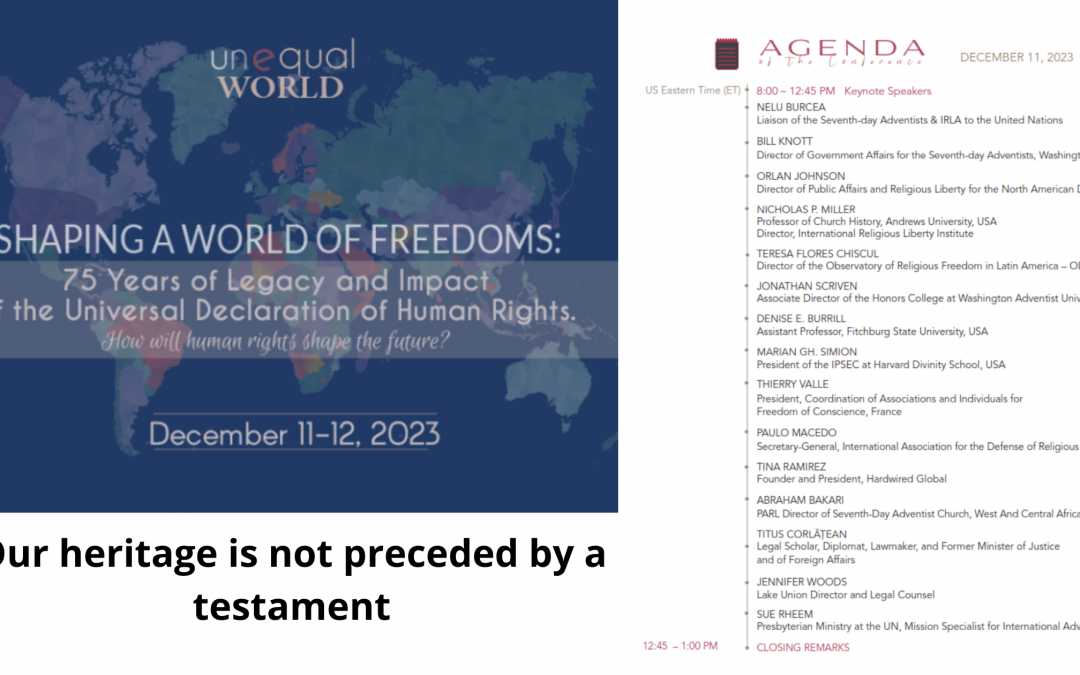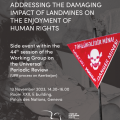By Thierry Valle 12/12/2023
Hannah Arendt quotes an aphorism by René Char (published in Feuillets d’Hypnos in 1946). “During the Resistance, a generation of European writers and men of letters created, in the political vacuum created by the collapse of the old system, a distinct public sphere, a bare space in which freedom could appear. But this opportunity did not last long. This treasure, which had appeared unexpectedly under mysterious circumstances, was soon lost. That generation was unable to give it a name. The history of revolutions was repeating itself.
Without a testament, no past is assigned to the future. There is no tradition to select, name, transmit and preserve. Without continuity over time, the value of treasures is unknown. Heirs, actors and witnesses, unable to give a name to what they have inherited, end up forgetting it. And then the tragedy begins. In the absence of a conscience capable of questioning, meditating, remembering, telling the story and giving it meaning, the act has value only for the dead and none for the living. The act is not completed, the event escapes”.
It was in this space of freedom that the Universal Declaration of Human Rights was born, and today we celebrate its 75th anniversary.
The same men who fought against the barbarity of the Second World War also gave birth to the United Nations, which will celebrate its 75th anniversary in 2020.
During these 75 years, the United Nations and the Universal Declaration of Human Rights have faced many challenges, many of which have been overcome, but many of which are unfortunately still relevant.
Because of the aims of my NGO, I am particularly attached to Article 18 of the Universal Declaration of Human Rights, the freedom of religion or belief. This fundamental article has been included by the United Nations in other UN treaties.
Article 18 was included in the International Covenant on Civil and Political Rights (ICCPR) in 1966.
1981: Declaration on the Elimination of All Forms of Intolerance and of Discrimination Based on Religion or Belief.
1998: The United Nations Commission on Human Rights appointed a Special Rapporteur on freedom of religion or belief to monitor and report on the situation of religious freedom worldwide. The Special Rapporteur investigates allegations of religious discrimination and persecution and recommends measures to remedy them.
However, religious freedom is under threat in many countries around the world. According to the U.S. State Department’s 2023 Report on Religious Freedom in the World, 61 countries, representing about 62% of the world’s population, do not respect religious freedom.
The climate crisis we are experiencing has created new threats, and we must face new challenges to uphold religious freedom.
Among these new challenges, it is imperative to engage religious freedom actors to actively participate in the implementation of the SDGs.
Preserving our planet is the greatest challenge we must take on for future generations, and the world of religions has an important role to play in this area.
An international study has shown how religious freedom can play an important role in the implementation of the Sustainable Development Goals (SDGs).
Here are some examples of how respect for religious freedom could fit into the Sustainable Development Goals:
SDG 1: End poverty
Religious freedom enables poverty to be tackled ‘at scale’ through ‘self-reliance’.
Around the world, innovative faith-based initiatives are tackling poverty through bottom-up approaches that empower people to be resourceful, resilient and self-reliant.
SDG 5 – Gender equality
Religion is often seen as a barrier to gender equality. There are many stories of sexist violence perpetrated in the name of religion.
The critical factor that is overlooked is religious freedom. Without religious freedom, minority groups, including women, will not have a seat at the table and their vital, productive and creative voices will not be heard.
SDG16 – Promote peace
A global study debunks the myth of religious violence. The research found no general causal link between religion and conflict when looking at all current conflicts around the world.
Countries with greater religious freedom tend to be more peaceful, while countries with less religious freedom tend to be less peaceful.
The most influential factor on religious freedom is the type of government. Total democracies are the most peaceful and have the highest levels of religious freedom, regardless of the type of religious belief or the various religious characteristics.
The Universal Declaration of Human Rights, a legacy handed down to us 75 years ago, and in particular the fundamental right to freedom of religion or belief, must now be included in this new challenge of the Sustainable Development Goals.
I will discusses the importance of the Universal Declaration of Human Rights, particularly the fundamental right of freedom of religion or belief, in upholding the Sustainable Development Goals (SDGs) as we face new challenges in a world under climate change. I argues that religious freedom enables poverty to be tackled through self-reliance, promotes gender equality, and fosters peace in a world where it is often seen as a source of conflict. I urges the international community to engage religious freedom actors in implementing the SDGs to preserve our planet for future generations.




